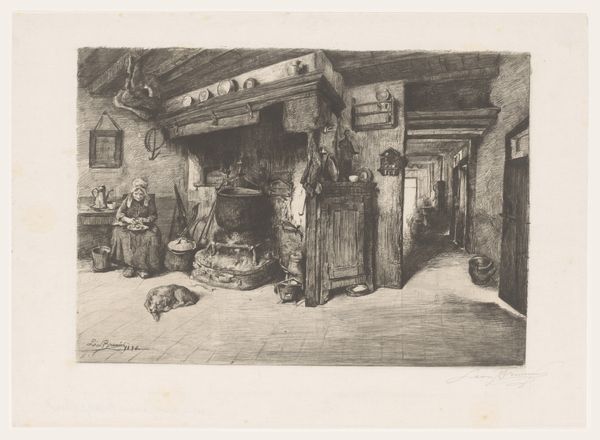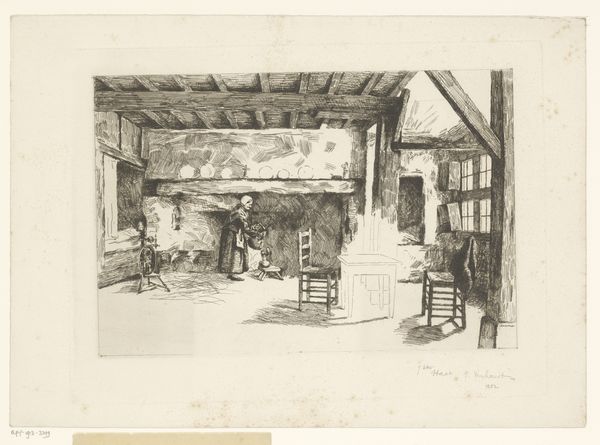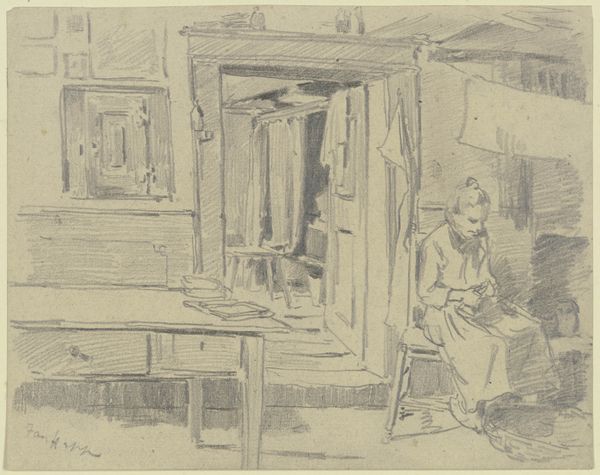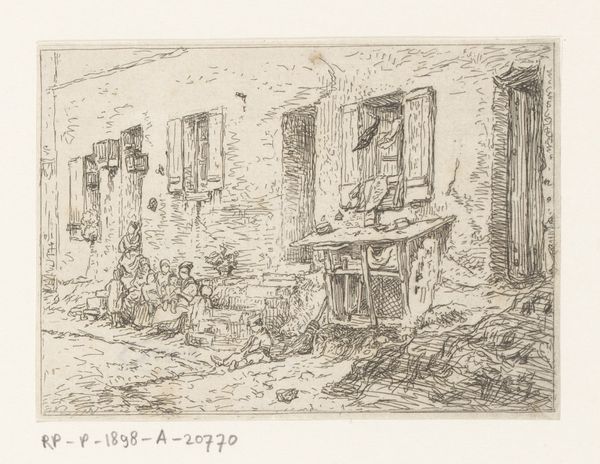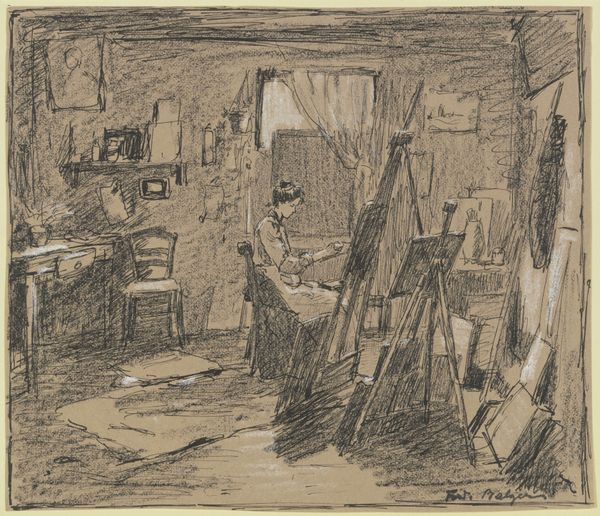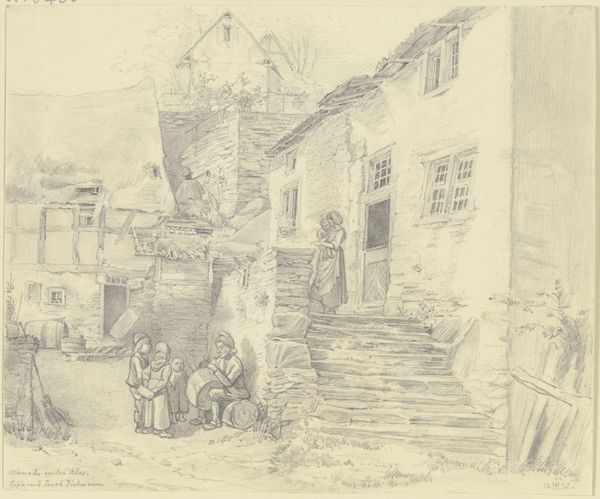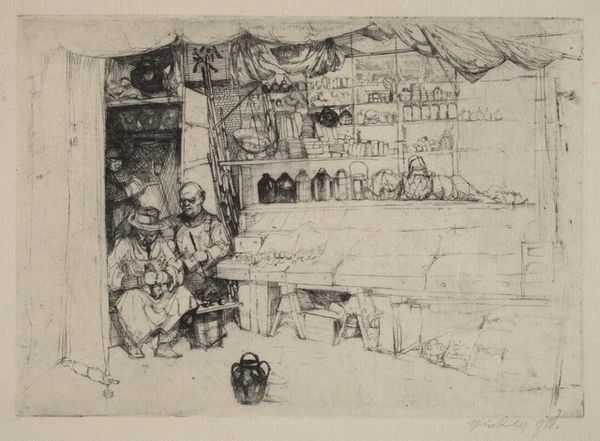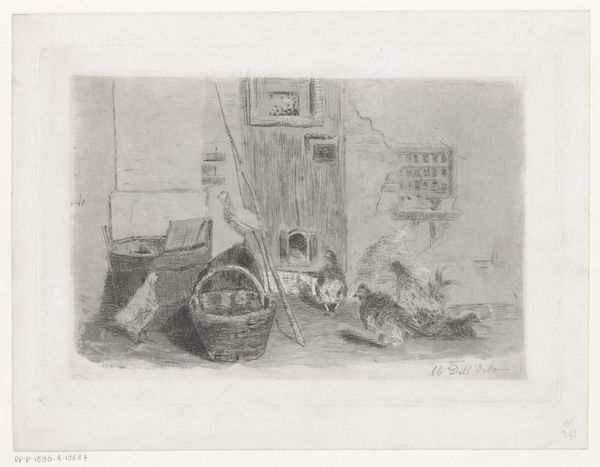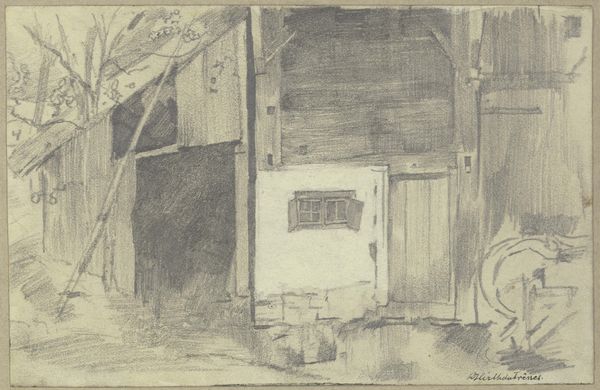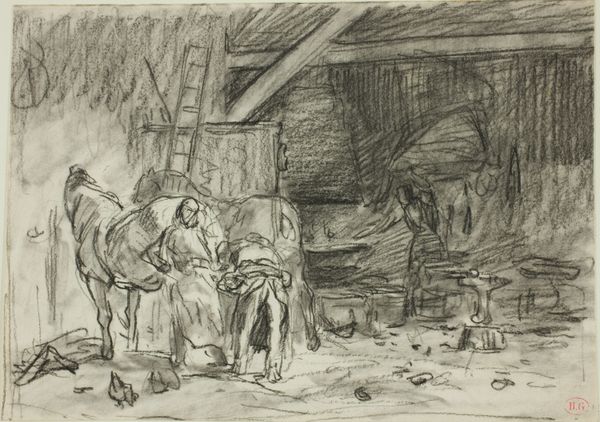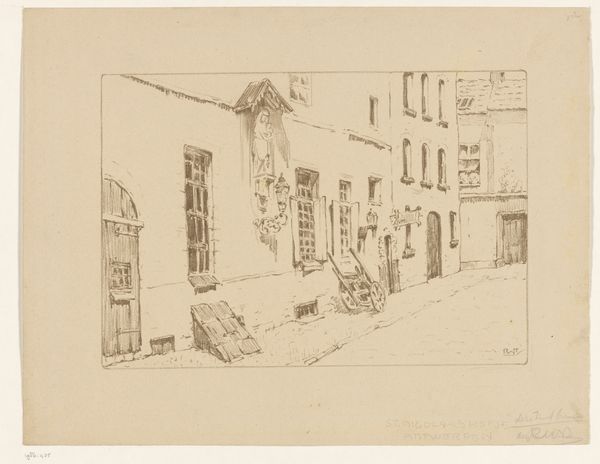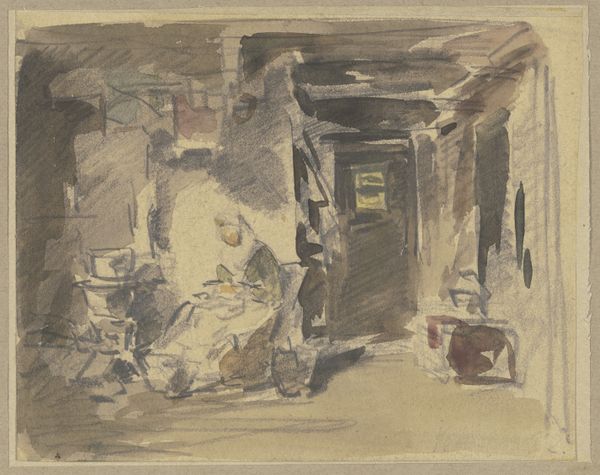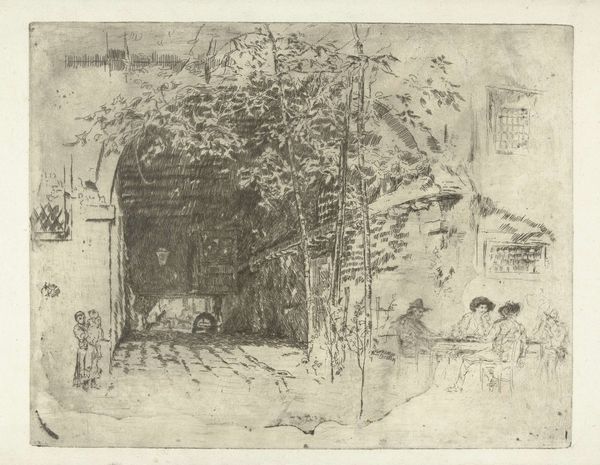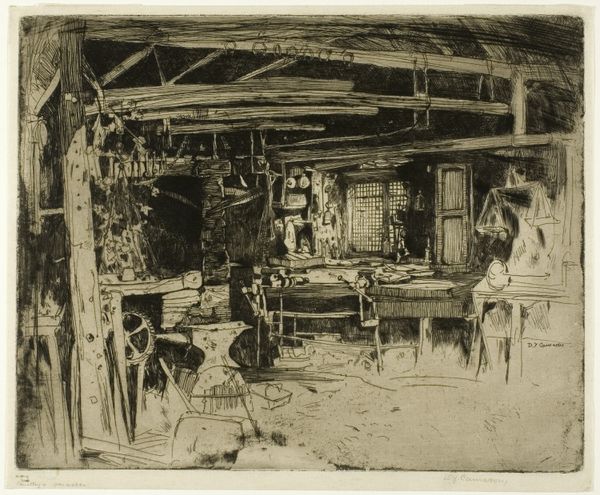
drawing, ink, pencil
#
drawing
#
narrative-art
#
ink
#
pencil
#
genre-painting
#
realism
Dimensions: height 237 mm, width 319 mm
Copyright: Rijks Museum: Open Domain
Editor: This is "Oude boerin in de keuken," or "Old farmer woman in the kitchen," a pencil and ink drawing by Léon Brunin from 1884. I find it so evocative. The mood seems quite sombre, reflecting maybe the harsh realities of rural life. What can you tell me about this work? Curator: This drawing presents us with an intimate glimpse into the domestic sphere of a rural woman. Brunin invites us to consider the politics inherent in representing working-class life. What do you observe about the gaze, or lack thereof, of the woman? Editor: She seems quite self-contained, almost oblivious to us as viewers. She's absorbed in her task, perhaps preparing food. The setting feels quite cramped, cluttered, yet she occupies this space with a certain quiet dignity. Curator: Precisely. How might we interpret this in the context of 19th-century social hierarchies? Brunin seems to acknowledge the labour often rendered invisible. Her enclosed workspace, contrasted with the suggestion of endless rooms fading into the distance, speaks volumes about women’s roles and constraints. How might her proximity to the hearth be symbolic? Editor: The hearth as a central space. Perhaps it's an explicit representation of her domestic duties, but I also see it as a sign of warmth and a signifier of nourishment that extends to her community. And the dog hints at a sense of belonging. Curator: Indeed. Consider the rise of Realism in art during this period. Artists aimed to depict life as it was, challenging romanticized views. Brunin's choice to focus on a simple, domestic scene invites viewers to contemplate the value and significance of everyday labor. How can an artwork such as this encourage reflection on our societal structures? Editor: I see the value now in situating it within the socio-political context. Brunin pushes us to value her work and lived experiences. Thanks! Curator: It also prompts me to reflect on how far we've come, or perhaps, how far we still need to go, in achieving true equity and representation.
Comments
No comments
Be the first to comment and join the conversation on the ultimate creative platform.
